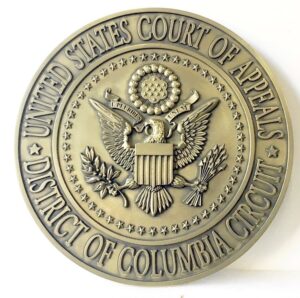 By Gerald L. Maatman, Jr. and Sean P. McConnell
By Gerald L. Maatman, Jr. and Sean P. McConnell
Duane Morris Takeaways: On April 15, 2024, in Visa Inc., et al., v. National ATM Council, Inc., et al., No. 23-814 (Apr. 15, 2024), the U.S. Supreme Court declined a petition for review submitted by Visa Inc. (“Visa”) and Mastercard Inc. (“Mastercard”) urging the Supreme Court to resolve a circuit split over the correct standard of review courts should use when evaluating motions for class certification. Mastercard and Visa argued that the U.S. Court of Appeals for the D.C. Circuit erred by only requiring plaintiffs to show that questions common to the class predominate and allowing the fact finder to later address issues related to uninjured class members. The Supreme Court denied the petition for review.
The D.C. Circuit’s ruling in Visa v. National ATM Council is required reading for any corporate counsel handling antitrust class actions involving price-fixing allegations and underscores the importance of the standard of review used by courts when considering class certification.
Case Background
Plaintiffs are ATM operators. Defendants are global payment technology companies. Plaintiffs alleged that Defendants instituted ATM fee non-discrimination rules that violated federal antitrust laws by prohibited ATM operators from charging customers different access fees for transactions on different ATM networks. Specifically, Plaintiffs alleged that the rules allowed Defendants to charge supracompetitive transaction fees and foreclose competition from other networks.
The D.C. Circuit’s Ruling
The Supreme Court declined Defendants’ petition for review of the D.C. Circuit’s affirmation of the certification of three different classes. Two consumer classes were certified on grounds that they were forced to pay supracompetitive ATM surcharges and a class of ATM operators was certified on grounds that that they could not use competing ATM networks. According to Defendants, the D.C. Circuit used a lower standard for class certification similar to one utilized by the Eighth and Ninth Circuits, whereas the Second, Third, Fifth, and Eleventh Circuits employ a more rigorous “careful consideration” standard regarding Plaintiffs’ burden to establish predominance.
By denying review, this issue remain unresolved in terms of Rule 23 class certification standards.
Implications For Defendants
Visa v. National ATM Council is an important example of the importance of Plaintiffs’ ability to show that questions common to the class predominate to earn class certification.
To the extent that the conflict between the two standards implemented across the circuit courts becomes more distinct, the U.S. Supreme Court may eventually weigh in to resolve it.
